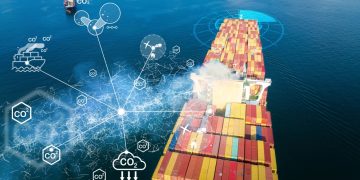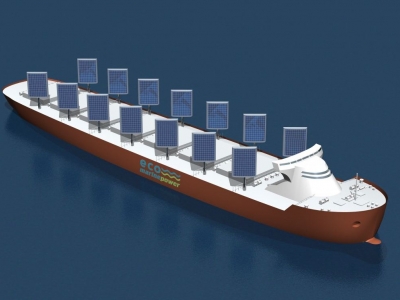Revolutionary Rigid Sail Design for Sustainable Shipping
Eco Marine Power Co. Ltd. announced today that it has completed the high level design for its innovative rigid sail known as the EnergySail. This revolutionary device will allow ships to harness the power of the wind and sun in order to reduce fuel costs plus lower noxious gas and carbon emissions.
The EnergySail (patent pending) is unlike any other sail – it can be used even when a ship is at anchor or in port and has been designed to withstand high winds or even sudden micro-bursts. The EnergySail can also be fitted with a range of renewable energy technologies such as solar panels and wind power devices.
The EnergySail design project commenced in August 2011 and now one year later, Eco Marine Power has developed a truly unique renewable energy platform for shipping that can be fitted to a wide variety of ships from large Capesize bulk ore carriers to naval and coastguard patrol ships.
A variation of the EnergySail that is suitable for Unmanned Surface Vessels (USV’s) and smaller ships such as passenger ferries or fishing vessels is also being developed.
The EnergySail can be configured to suit the operational profile of a vessel. For example the number and type of solar panels can be easily changed or a variety of other devices can be fitted to the EnergySail.
The flexible nature of the EnergySail design will also allow for it to be upgraded during the life-cycle of the ship or vessel it is fitted to.
“We spent a lot of time during the design phase focused on incorporating safety features into the EnergySail and also making it flexible in terms of being easy to re-configure or upgrade the device. Wind and solar power technologies will improve during a ship’s operational lifespan so in our view it was critical that the EnergySail be easily upgradable” said Greg Atkinson, Director of Research & Design at Eco Marine Power.
The EnergySail has primarily been designed for Eco Marine Power’s Aquarius MRE System however other applications for its use are also being studied.
Source: Eco Marine Power































































